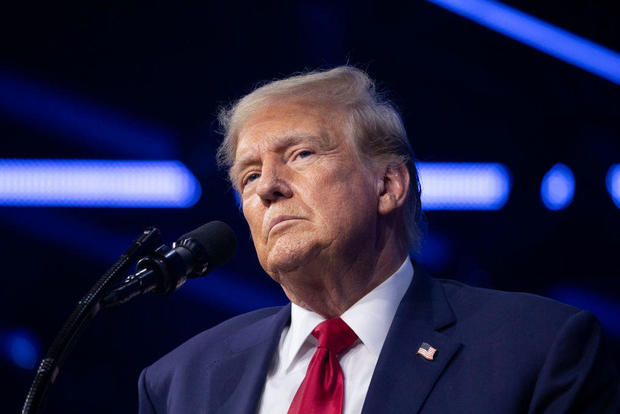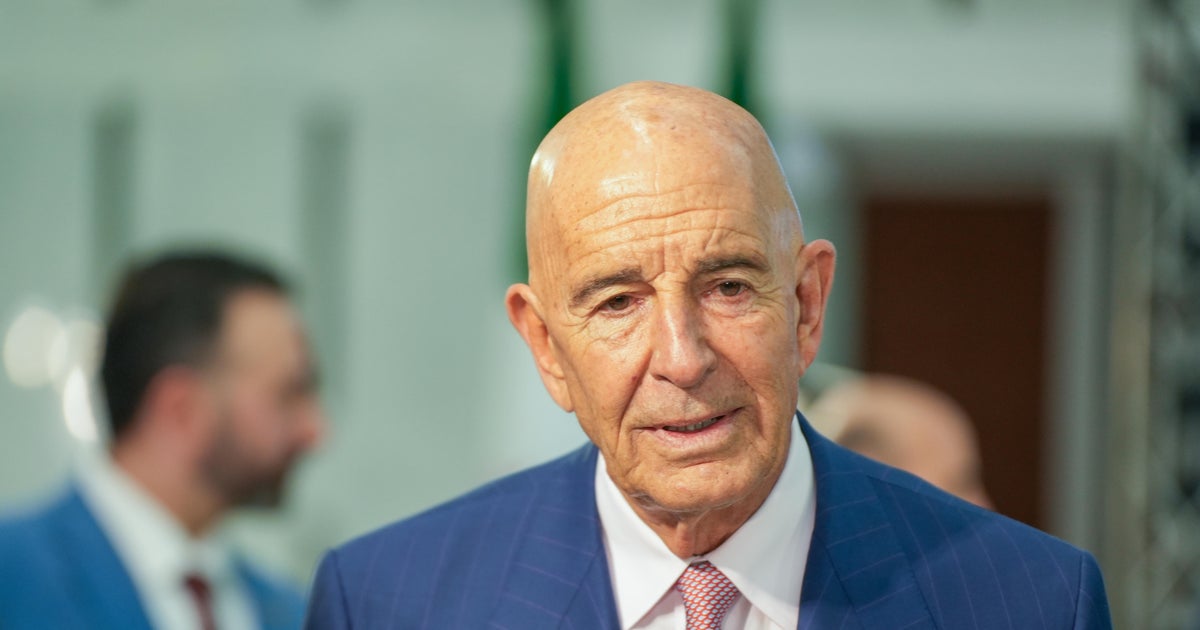New York prosecutors ask judge to keep Trump gag order in "hush money" case in place
Major elements of a gag order preventing Donald Trump from commenting publicly about certain people involved with his New York criminal trial, including jurors, should remain in place, prosecutors said, perhaps even after Trump is sentenced on July 11.
Prosecutors for Manhattan District Attorney Alvin Bragg told Justice Juan Merchan in a filing released Friday that the order is needed to shield jurors, attorneys and staffers from threats. Since his conviction three weeks ago, prosecutors wrote, Trump "has not exempted the jurors from his alarming rhetoric that he would have 'every right' to seek retribution as president against the participants in this trial as a consequence of his conviction because 'sometimes revenge can be justified."
Merchan issued the gag order March 26, barring the former president from making public comments about witnesses, jurors, court and the prosecution staff, as well as the relatives of any counsel or court staffer. Prosecutors said Friday that they agreed with Trump's attorneys that the protections for witnesses were no longer needed, but said the rest of the provisions of the order should remain in place.
Prosecutors said the gag order includes "narrowly tailored protections on specific participants" in the case, allowing Trump to comment about a range of others not involved in the prosecution, including President Biden, White House officials and Robert De Niro, the actor and Democratic surrogate.
But prosecutors said Trump's words since his conviction have raised safety concerns for participants in the trial, particularly jurors.
"Defendant's supporters, following his lead, have attempted to identify jurors and threatened violence against them," prosecutors said. An attorney for Trump did not immediately return a request for comment.
The filing also said the NYPD tracked 56 "actionable threats" directed towards Bragg, his family and staff between April and June. That figure does not include nearly 500 other threatening calls and emails that were referred to police, the filing said.
New York's highest court dismissed an appeal by Trump's attorneys challenging the constitutionality of the gag order on Tuesday. The Court of Appeals' brief ruling said the panel found "that no substantial constitutional question is directly involved."
A lower appellate court in May found that Merchan "properly determined that [Trump's] public statements posed a significant threat to the integrity of the testimony of witnesses and potential witnesses in this case."
When Merchan issued the gag order in March, he said it was due to Trump's statements about people involved in the case that were "threatening, inflammatory, [and] denigrating."
Trump violated the gag order 10 times before and during the trial. He was ultimately convicted of 34 counts of falsifying business records for signing off on a scheme to cover up reimbursements for a "hush money" payment to an adult film star made days before the 2016 presidential election to prevent voters from learning of her allegations. He continues to deny all wrongdoing.
Trump has vowed to appeal the conviction, and the case itself may ultimately end up at the state Court of Appeals. Trump is scheduled to be sentenced in the case on July 11. He risks incarceration not only for the conviction, but also for further violations of the gag order, as Merchan warned earlier.
In their latest filing, prosecutors implied they may ultimately advocate for the gag to remain in place after sentencing, as Trump pursues an appeal of his conviction. They included an exhibit that showed the office has received an onslaught of threats of violence.
"The justification for this provision may well continue after sentencing because the counsel and staff members of the District Attorney's Office who participated in this trial will continue to be engaged in any appeal, along with additional appellate staff; and this criminal proceeding will continue through the appeal that defendant has already announced he intends to pursue," prosecutors wrote. "The need to protect prosecutors, staff, and their families from defendant's violent rhetoric and inflammatory public attacks may thus remain acute after sentencing."




